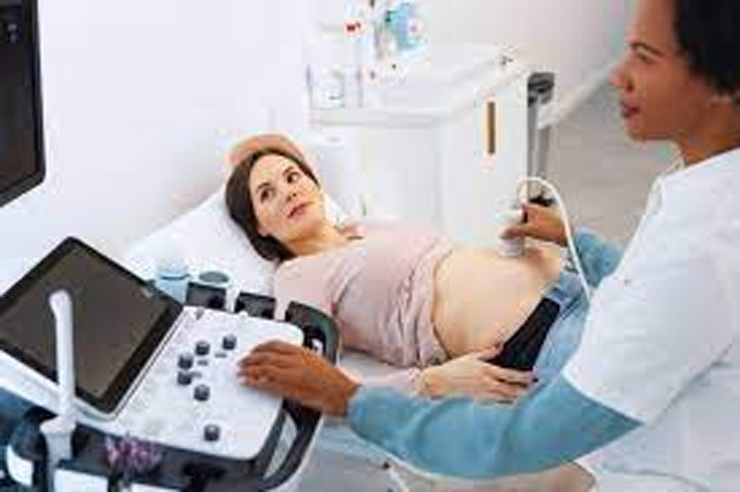
Exciting news has emerged from Bollywood and the cricketing world! Actor Athiya Shetty and cricketer KL Rahul, who tied the knot in January 2023, have announced they’re expecting their first child. The couple shared the news on social media with the caption, “Our beautiful blessing is coming soon. 2025.” Fans and well-wishers are thrilled for this beloved duo as they prepare to welcome their new addition.
Table of Content:-
As Athiya and Rahul look forward to this new chapter, many expecting parents might wonder about the various steps to ensure a healthy pregnancy. Prenatal screening tests are among the essential procedures for monitoring the baby's development and detecting any potential health concerns early. Let’s delve into what these screenings involve and why they’re an important part of prenatal care.
Understanding Prenatal Screening Tests
Prenatal screening tests are designed to assess the likelihood of certain genetic or chromosomal conditions in the developing baby. These tests don’t provide definitive answers but offer a probability that a condition might be present, allowing parents and doctors to decide on any further necessary diagnostic procedures.
View this post on Instagram
Prenatal screenings are usually noninvasive and are generally recommended by healthcare providers for expecting parents, especially during the first and second trimesters. They can detect the risk of conditions like Down syndrome, cystic fibrosis, and other congenital anomalies. Many screenings are standard procedures in prenatal care, while others may be optional, depending on individual risk factors.
Key Prenatal Screening Tests and When They’re Done
As per Dr. Shreedevi Tanksale, Director - Obstetrics & Gynecology & Infertility specialist, Little Miracles Fertility Clinic, these are the important tests that should be done during all the trimesters of pregnancy.
First Trimester Screening Tests (10–14 Weeks)
Blood Tests and Ultrasound
The first trimester includes blood tests and an ultrasound to evaluate the baby’s development. Blood tests, such as the Sequential Integrated Screening, measure specific proteins and hormone levels in the mother’s blood to assess the likelihood of chromosomal abnormalities like Down syndrome.
Nuchal Translucency Ultrasound
This specialised ultrasound measures the fluid accumulation at the back of the baby’s neck, which can indicate an increased risk of chromosomal issues. This test, usually performed between 11 and 14 weeks, is a routine part of early screenings.

Non-Invasive Prenatal Testing (NIPT)
NIPT is an optional blood test that can be done as early as the 10th week to detect common genetic conditions. Additionally, NIPT can determine the baby’s sex if parents are interested. However, this test may not be available at all healthcare facilities and might be recommended based on specific risk factors.
Second Trimester Screening Tests (15–22 Weeks)
Also Read: Fatima Sana Sheikh Opens Up About Epilepsy Diagnosis; Here’s Everything To Know About It
Quad Marker Screening
During the second trimester, the quad marker test measures four specific proteins in the mother’s blood to identify any risks of neural tube defects, Down syndrome, or other developmental abnormalities. This test is typically conducted between 15 and 20 weeks.
Fetal Anatomy Ultrasound
Often scheduled around 18–22 weeks, this detailed ultrasound examines the baby's anatomy, assessing organs and bones. It provides a clearer view of the baby’s physical development and can help detect structural abnormalities.
Glucose Screening
Around 24–28 weeks, most expecting mothers undergo a glucose screening test to check for gestational diabetes. This common test involves drinking a sugary solution and then measuring blood sugar levels to determine the body’s response to glucose.
Third Trimester Screenings for Maternal and Baby Health
In the final weeks of pregnancy, routine screenings ensure both the mother and baby remain healthy and ready for a safe delivery.
Group B Strep Test
Group B streptococcus (GBS) is a common bacterium that can pose serious health risks to newborns if passed on during vaginal birth. Between 36–37 weeks, a GBS screening is done using a vaginal and rectal swab. If positive, the mother will receive antibiotics during labour to reduce the risk to the baby.
Additional Blood Pressure and Health Monitoring
Throughout pregnancy, regular checks for blood pressure, iron levels, and general health are important. These routine checks ensure that any issues, such as preeclampsia or anaemia, are managed early.
Bottomline
Every pregnancy is unique, and deciding which screenings to pursue is often a personal choice. Healthcare providers can guide parents through the benefits and potential risks associated with each test. If you’re uncertain, consulting a genetic counsellor can offer deeper insights and help you make informed decisions.
Prenatal screenings are valuable tools that help expecting parents feel more prepared and informed. For Athiya Shetty and KL Rahul, this joyful period likely includes such measures to ensure their little one arrives healthy and strong. As they and countless others journey through pregnancy, understanding these screenings can provide reassurance and a sense of control over the health of both mother and child.
Also watch this video
How we keep this article up to date:
We work with experts and keep a close eye on the latest in health and wellness. Whenever there is a new research or helpful information, we update our articles with accurate and useful advice.
Current Version